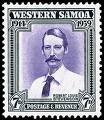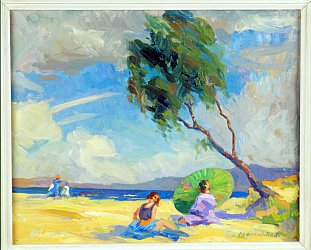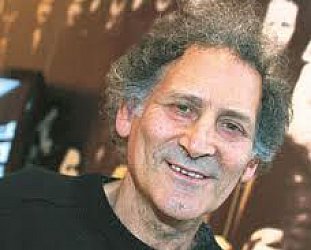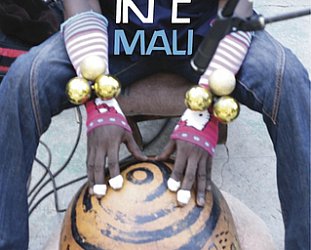Graham Reid | | 2 min read

When Robert Louis Stevenson died at 44 in his Samoan home, half a world away from his birthplace of Edinburgh, he left a remarkably diverse body of work. In fewer than two decades he turned out popular romantic novels (among them Kidnapped and Treasure Island), the psycho-drama of The Strange Case of Dr Jekyll and Mr Hyde, numerous poems, insightful travel books, many essays and short stories, and peculiar fable-like fictions such as The Song of the Morrow (an allusive, mysterious deja-vu story) and The Bottle Imp.
That latter story of damnation, redemption and paradox set in the Pacific opens this small, exceptionally cheap ($25) but handsomely presented collection of short pieces by Stevenson, some having never appeared in print previously.
At the time of his death in 1894 Stevenson was working on Weir of Hermiston, but given his prodigious output it is no surprise he had also drafted out ideas for yet another novel, one set in the Pacific. The notes for Sophia Scarlet are among the previously unpublished pieces.
This novel of characters in conflict with family and their surroundings is only sketched out but clearly Stevenson had some parts fully formed in his own mind ready to punctuate into the outline. It was an ambitious novel for him, the protagonist and all the main characters were women: “A kind of love affair between the heroine and a dying planter who is a poet! Large order for RLS”, he wrote, according to Frank McLynn‘s 1993 biography.
Sophia Scarlet was set aside however as Stevenson worked on Weir of Hermiston, intended to be the final in a “Scottish trilogy” which had begun with Catriona (the unsuccessful sequel to Kidnapped with a female central character) and The Young Chevalier (also abandoned).
Of as much interest here however are some inspirational speeches, one made to Samoan chiefs at his home Vailima who had, by their own hands and with their people, built what is known as “The Road of Loving Hearts“ to his property. In ringing historical and Biblical metaphors you can hear Stevenson’s powerful and persuasive voice as he thanks the chiefs and invites them to look to the future: roads make a people, he says, and allow for traffic, communication and social contact. He warns of Samoa’s occupation by outsiders unless the people honour their land.
His love of Samoa and Pacific people is apparent also in his address to students (“you are the hope of your race” he begins), some cautionary tales (notably Talofa, Tongarewa! about the spread of leprosy) and in his condemnation of practice of blackbirding where Melanesians were taken, often kidnapped, to Australia to work on farms.
Certainly as a man of his era and upbringing Stevenson believed in the civilising power of the Church, western culture and the moral precepts of the Bible, but he tempered it with a genuine respect for Pacific people and travelled widely enough to speak with some authority. While he offers tacit approval to the missions from Europe he insists local people must and will determine the course of their own faith and destiny.
This well annotated collection (edited by Robert Hoskins) will be best appreciated by scholars or those who know Stevenson’s Pacific writings, and in that it is valuable.
These days many of Stevenson’s novels have been dismissed as mere escapism -- not entirely fair -- but his Pacific writing, of all persuasions from talks to essays, makes for provocative reading and should ensure lively discussion.
Frankly though, Sophia Scarlet did not look promising.







post a comment